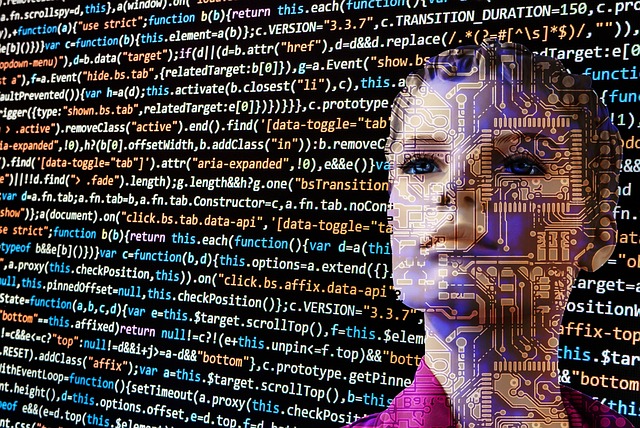Share This Article:

Pittsburgh, PA (WorkersCompensation.com) -- In just a few months, you’ll be able to ask a virtual assistant to transcribe meeting notes during a work call, summarize long email threads to quickly draft suggested replies, create a complex chart in Excel, and turn a Word document into a PowerPoint presentation in seconds.
Thomas Davenport, a professor of information technology and management at Babson College, said the rapid advancement of artificial intelligence (AI) is poised to dramatically reshape the modern workplace, beckoning a new era of unprecidented change.
“It is coming. You can’t bury your head in the sand and hope it will wash away because the automation of certain job tasks could disrupt millions of jobs worldwide,‘’ said Davenport. He pointed out that industries involving routine, repetitive tasks that can easily be automated are at the forefront of the seismic change. That means jobs in office and administrative support, legal work, architecture and engineering face the highest risk of automation with almost 40 percent of tasks respectively replaced by AI.
And Davenport was quick to ad that entry level journalism jobs and marketing posts also will be replaced by AI. “I’m using it in my classes. Everyone will be an editor with the use of AI,’’ said Davenport.
Over the past week, a rapidly evolving artificial intelligence landscape seemed to leap ahead again. Microsoft and Google each unveiled new AI-powered features for their signature productivity tools and OpenAI introduced its next generation version of the technology that underpins its vital chatbot tool ChatGPT.
Suddenly, AI tools, which have long operated in the background of many services, are now more powerful and more visible across a wide and growing range of workplace tools. Google’s new features, for example, promise to help “brainstorm’’ and “proofread” written work on Docs. And if your workplace uses popular chat platform Slack, you will be able to have its ChatGPT too.
But Davenport of Babson College said there are also some factors that could limit the runaway advancement in AI. “AI often requires learning which can involve massive amounts of data, calling into question the availability of the right kind of data, and highlighting the need for categorization and issues of privacy and security around such data,’’ according to Davenport.
Denise Rousseau, the H.J. Heinz II university professor of organizational behavior and public policy at Carnegie Mellon University, reports that there is also the limitation of computation and processing power. Surveys show that the cost of electricity alone to power one supercharged language model AI is estimated to be about $4.6 million.
Rousseau said another important limitation to AI is that data can itself carry bias, and be reflective of societal inequities or the implicit biases of the designers who create and input the data. If there is bias in the data that is inputted into an AI, this bias is likely to carry over to the results generated by the AI.
AI touts the promise of greater productivity and the elimination of so-called grunt work. Still, the promise of greater productivity remains unclear. The rise of AI-generated emails, for example, might boost productivity for the sender but decrease it for recipients flooded with longer-than-normal computer-generated messages. And just because everyone has the option to use a chatbot to communicate with colleagues doesn’t mean all will choose to do so.
“Integrating this technology into the foundational pieces of productivity software that most of us use everyday will have a significant impact on the way we work,’’ according to Robert Strauss, a professor of economics and public policy at Carnegie Mellon University.
Strauss said he was extremely concerned about the impact of AI on the medical field which has a robust amount of data which can be utilized to create predictive models related to healthcare. “We still need to rely on physicians for certain diagnostic contexts,” Strauss said.
Even entrepreneur Elon Musk has described AI as a “very dangerous technology’’ and if unchecked could be a threat to society.
However, AI and machine learning are still at the top of many lists of the most important skills required in today’s job market. Jobs requesting AI or machine learning skills are expected to increase by 71 percent in the next five years, according to the U.S. Labor Department.
california case management case management focus claims compensability compliance courts covid do you know the rule emotions exclusive remedy florida FMLA fraud glossary check health care Healthcare hr homeroom insurance insurers iowa leadership medical NCCI new jersey new york ohio osha pennsylvania roadmap Safety state info technology texas violence WDYT west virginia what do you think women's history women's history month workcompcollege workers' comp 101 workers' recovery Workplace Safety Workplace Violence
Read Also
- Apr 03, 2025
- Frank Ferreri
- Apr 02, 2025
- Liz Carey
About The Author
About The Author
-
Chriss Swaney
Chriss Swaney is a freelance reporter who has written for Antique Trader Magazine, Reuters, The New York Times, U.S. News & World Report, the Burlington Free Press, UPI, The Tribune-Review and the Daily Record.
More by This Author
Read More
- Apr 03, 2025
- Frank Ferreri
- Apr 02, 2025
- Liz Carey
- Apr 02, 2025
- Claire Muselman
- Apr 02, 2025
- Claire Muselman
- Apr 01, 2025
- Frank Ferreri
- Apr 01, 2025
- Chriss Swaney




